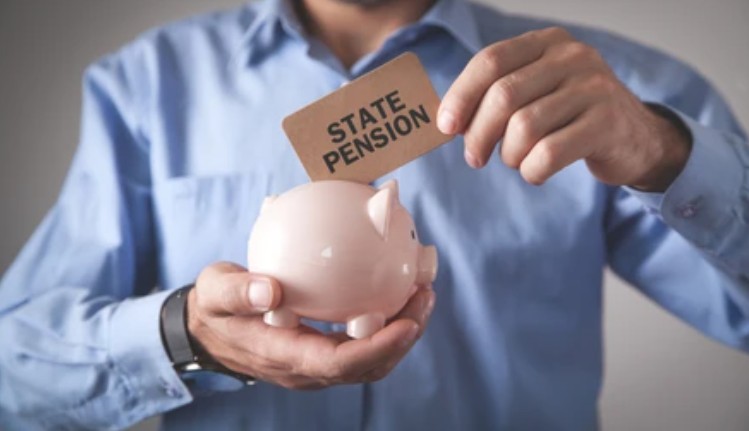A new wave of frustration has erupted overseas as nearly half a million British pensioners are set to miss out on the annual State Pension age increase coming in April.
Despite the rise being confirmed for those living in the UK, many retirees abroad remain trapped under the long-contested “frozen pensions” policy, a rule leaving their payments stuck at the same rate as the day they first claimed.
Canada’s Parliament Reaction
During a heated debate in the Canadian Parliament, several MPs criticized their own government for failing to use trade talks with the UK as leverage to end the decades-old freeze.
The issue surfaced again as Canada continues to push for fair treatment of British pensioners living within its borders.
One MP described the UK’s stance as “unfair and discriminatory,” while others highlighted the heavy toll on Canada’s economy, reportedly costing over $1 billion a year.
The “frozen pensions” policy affects thousands of UK pensioners in countries such as Canada, Australia, India, and South Africa, as well as in British overseas territories like the Falkland Islands.
While their pensions remain fixed, those in the EU and the US see annual increases that track inflation.
The result? Pensioners in the Commonwealth can be left scraping by on as little as £60 a week, compared to the full UK Basic State Pension of £176.45.
Campaigners say many expats were never informed of the policy before moving abroad, often relocating to be closer to family later in life.
The lack of clarity has left many older Britons struggling financially, feeling betrayed by a system they contributed to for decades.
Canadian MPs, from all major parties, slammed the “inequity and unfairness” of the rule. They insisted it should become a “critical component of all trade negotiations when it comes to the UK”.
New Democratic Party MP Gord Johns didn’t mince his words: “Seniors here are losing tens of thousands of dollars over the course of their retirement.
That costs the Canadian economy over $1 billion annually and leaves many seniors in poverty. These include veterans, nurses, people who have lived in Great Britain and served their country.”
Financial and Emotional Impact
Liberal MP James Maloney added that the issue has been raised “at every opportunity” with British officials, saying: “We have written letters to the Prime Minister of the United Kingdom.”
Conservative MP Adam Chambers accused the Canadian government of not doing enough to protect UK pensioners, warning: “If and when the bill is passed, we will have lost negotiating leverage with the UK to support UK pensioners living in Canada.”
Mr Johns also drew attention to the plight of 100-year-old Second World War veteran Anne Puckridge, who moved to Canada in 2001 to live with her daughter.
“Anne was a veteran who served the UK, and the UK has abandoned her… British pensioners in countries like the United States and Jamaica and across the European Union receive a pension that is fully indexed annually, unlike Canadian pensioners.”
Campaigns and Global Backlash
Both Canada and Australia have ramped up diplomatic pressure on the UK to review the outdated policy.
Earlier this year, over 100 Canadian parliamentarians signed an open letter urging London to enter negotiations, while Australia’s Social Services Minister Amanda Rishworth made a similar plea directly to the UK’s Department for Work and Pensions.
Campaign leader Edwina Melville-Gray, Chair of End Frozen Pensions Canada, said: “This debate in the Canadian Parliament is clear evidence that the UK’s frozen pensions policy is damaging not only pensioners but the UK’s reputation and ability to build strong diplomatic and trading relationships with key allies.
Canadian MPs are growing increasingly angry… this policy is politically unsustainable, morally indefensible and the Canadian government should use every opportunity for leverage to see it ended.”
Government Response
According to the Department for Work and Pensions, the stance has remained unchanged for over 70 years.
In response to recent parliamentary questions, Pensions Minister Torsten Bell stated: “The policy on uprating UK State Pensions paid overseas is longstanding and has been in place for over 70 years.
UK State Pensions are payable worldwide, without regard to nationality, and are only uprated abroad where there is a legal requirement to do so.”
Critics, however, argue that the approach is outdated and out of step with Britain’s modern trade and diplomatic ties.
Budget & New State Pension Rates
Despite the ongoing freeze for many abroad, the State Pension age update for UK residents will still go ahead. Chancellor Rachel Reeves is expected to confirm the new rates at the Autumn Budget on 26 November.
If the anticipated 4.8% rise is applied, pensioners will receive:
- Full New State Pension: £241.30 per week (up from £230.25)
- Four-weekly payment: £965.20
- Annual amount: £12,547
- Full Basic State Pension: £184.90 per week (up from £176.45)
- Four-weekly payment: £739.60
- Annual amount: £9,614
For the 432,000 British pensioners abroad, many of them long-serving workers, nurses, and veterans, the hope remains that Westminster will finally unfreeze their payments.
Until then, the growing global pressure from allies like Canada and Australia might just be the catalyst that forces the UK to rethink how it treats its own retirees.






